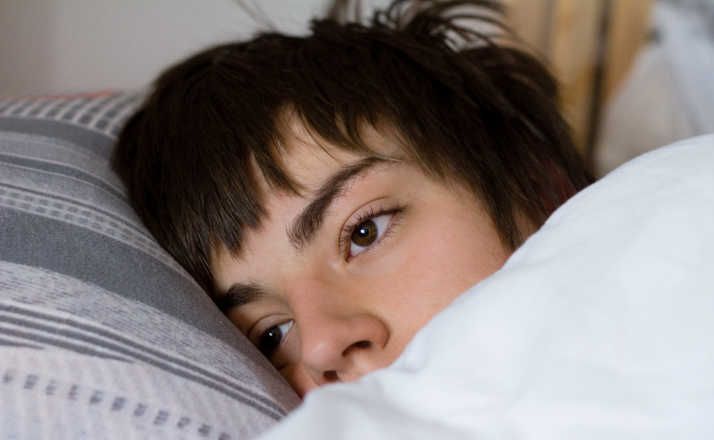When I was a kid growing up in the eighties, my mom used to say that a good night’s sleep was the key to a happy day.
No matter what was bothering me, be it a head cold, a spat with a friend, or even a growth spurt, my mom would encourage me to get a decent meal, and then she’d send me to bed a little bit early.
She knew something that science is finally figuring out; sleep is crucial to mental and emotional health and resiliency.
And as we slog through the second year of a global pandemic, I can see how the wisdom of my mom’s advice most definitely affects the general health of my kids, especially my teen.
According to the Washington Post that looked at different sleep studies, teens who get consistent sleep during the week show higher levels of happiness and well-being.
But teens who have sporadic sleep schedules and stay late during the week but try to gain extra sleep on the weekends did not score well on the happiness well-being index.
It seems that teens don’t just need one decent night’s sleep to be well; they need a consistent and continuous sleep schedule to reap the mental, physical, and emotional benefits.
So, how much sleep should teens be getting?
According to the American Academy of Sleep Medicine, kids require different amounts of sleep depending on their age.
Kids aged 6 to 12 need regular rest for 9 to 12 hours a night, and teens between 13 and 18 need slightly less sleep at 8 to 10 hours per night.
But the CDC reports that kids aren’t getting enough sleep. According to the Washington Post, that lack of Zzz’s may be adversely affecting kids who are trying to adjust to a shifting world that is coming out of pandemic lockdowns.
“When you don’t sleep well, emotional regulation is one of the first things to go,” Lisa Meltzer, a pediatric psychologist at National Jewish Health in Denver, told the Washington Post.
“Insufficient, poor-quality or poorly timed sleep — each one of these can exacerbate mental health conditions.”
As a parent, I know that trying to keep my kids safe is no longer as simple as explaining stranger danger online or why we don’t eat junk food every day.

Safety now means keeping my kids from catching Covid but feeling like we’re playing chicken with our family’s mental health while we do it.
When my kids spent 641 days home from school, I watched them fall apart from losing their connections to teachers and peers, routines, and expected milestones.
And now, as we make our way back to school and into a new normal, my focus as a parent has become to help my kids strengthen their mental and emotional health.
And you know what works to help strengthen mental and emotional health? Sleep.
Meltzer gave the Washington Post some fantastic advice about getting a handle on solid sleep hygiene, which is a cornerstone of physical, mental, and emotional health.
- Kids shouldn’t play in bed. Their bed should be for sleeping, not playing video games or watching YouTube on their screens. By creating a space that is solely for one function, it helps their brains calm down and prepare for sleep. Also, studies like this one have shown blue light from screens to be terrible for kids’ brains, especially before they try to go to sleep.
- Make sure your child’s bedroom is dark when they sleep and that they experience bright light when they wake. Now, living in northern New England, I can tell you that this is all but impossible for several months out of the year. My kids don’t see bright sunlight until we drive to school, an hour after they’ve woken up.
- Create and stick to a strict sleep schedule. Kids who have a regular, predictable sleep schedule can quickly adjust their bodies and brains to their sleep times. A consistent sleep schedule also helps regulate the circadian rhythm, which guides the brain through the sleep cycles.
“When we’re talking about sleep and mental health, those are the three takeaways: one, a consistent schedule; two, bright light in the morning; and three, only being in bed when they’re sleeping,” Meltzer told the WaPo.
Here are some other tips to help kids get better sleep.
Make sure they are eating a healthy, balanced diet with plenty of fresh fruits and vegetables. Exercise every day – even just jumping and dancing around the house, which is so fun – is enough to help get the wiggles out.
And lastly, keeping open lines of communication with your kids about how they are feeling and adjusting to their ever-changing social world is key to making them feel seen, heard, and safe.










